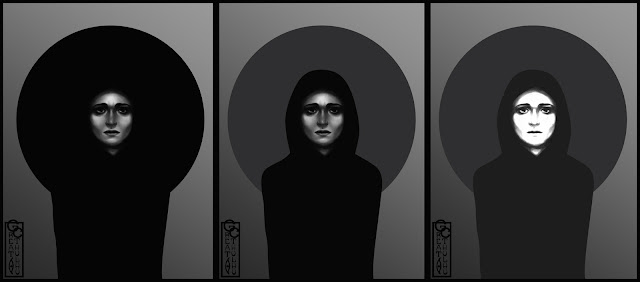Paul Bocuse, The Legendary Chef
PAUL BOCUSE, THE LEGENDARY CHEF
What impact did the 'Pope of Gastronomy' have on the world of cuisine? Some hightlights of the influential life and legacy of Paul Bocuse.
Paul Bocuse was one of the few chefs whose name everyone knows. The so-called "Monsieur Paul" or Mr Paul represented "simplicity and generosity, excellence and the art of living", tweeted Gérard Collomb, Minister of the Interior and former Mayor of Lyon upon the news of his passing.
But what was it that made Paul Bocuse so much more? Why did the whole world, even those removed from gastronomy, know who he was?
Fine Dining Lovers looks back at some highlights of the "Pope of Gastronomy's" career to help understand.
WHO WAS PAUL BOCUSE?
Paul Bocuse, born 11 February 1926 in Collonges-au-Mont-d'Or, a few kilometers from Lyon, "fell into the cooking pot" when he was little.
The chef was both the son and grandson of restaurateurs and hailed from a long line of cooks, dating as far back as the 17th century.
After joining the French Army in 1944, he began his culinary apprenticeship in 1946 with a well-known woman from Lyon: Eugénie Brazier. The young man then pursued his career at Lucas Carton in Paris alongside Gaston Richard and at La Pyramide de Vienne with Fernand Point - his spiritual father - and Paul Mercier.
In 1958, Paul Bocuse returned to Collonges and won his first Michelin star with his father. Following his father's death one year later, the young man took over the business. It would be here that everything would come together: crowned Meilleur Ouvrier de France in 1961, the chef went on to receive his second star a year later and the third three years later.
He was made Knight of the Legion of Honor (Chevalier de la Légion d'honneur) by President Valéry Giscard d'Estaing in 1975, then becaming a partner of Roger Vergé and Gaston Lenôtre for the operation of Epcot Center restaurants at Disney World in Orlando (United States), before opening his first corners, bakeries and patisserie in Japan.
At the end of his career, Paul Bocuse was at the head of 23 institutions around the world.
PAUL BOCUSE AND NOUVELLE CUISINE
Paul Bocuse is considered the father of "Nouvelle Cuisine", an expression coined by food critics Henri Gault and Christian Millau in 1973. At that time, both men had lunched at the Auberge du Pont de Collonges and feasted so heavily that they decided to come back for dinner, but in the search of something lighter. Paul Bocuse served them a crispy green bean salad that remained etched in their memory.
"At first glance, it didn't give away much, but this salad was simply incredible!" The crisp green beans still smelt of the garden, an exceptional flavor, and it was grandiose in its extreme simplicity. Next arrived small red mullets cooked to perfection, that is to say, with very little cooking, firm and with all the scent of the sea. Nouvelle cuisine existed and we had just met it," said the two food critics.
The "Pope of gastronomy" was quickly joined in the nouvelle cuisine revolution by his friends Alain Chapel, Michel Guerard, Paul and Jean-Pierre Haeberlin, Jacques Pic, Alain Senderens, Pierre and Jean Troisgros and Roger Vergé. Together, these passionate chefs turned the cook into a creator and freed themselves from the dogmas of bourgeois cuisine.
Over the years, haute cuisine said goodbye to static recipes and dishes in sauces, and instead began to highlight the product and lightness.
This paved the way for legendary dishes, like Michel Guérard's crazy salad, in which the vinaigrette is replaced with foie gras, or salmon with sorrel by Jean and Michel Troisgros.
PAUL BOCUSE - THE TRANSMISSION OF KNOWLEDGE
If Paul Bocuse's career was successful, it was also thanks to his enthusiasm for passing on his knowledge and passion. Moreover, countless numbers of chefs passed through his kitchens becoming Meilleur Ouvrier de France or Michelin starred chefs.
In 1987, Paul Bocuse cemented this desire for transmission of knowledge and recognition of the profession of cook by creating the Bocuse d'Or, one of the most prestigious gastronomy competitions in the world. The festive competition, which still take place every two years, bringing together all the major countries involved in gastronomy. The competition that is open to the public to support and more than demanding for the candidates.
In 1989, Paul Bocuse was crowned Cook of the Century by Gault & Millau alongside Frédy Girardet and Joël Robuchon.
In the meantime, the chef created the Paul Bocuse Institute, a prestigious cooking school in Ecully, as well as another school of the same name in Lyon. Later, the chef also opened an institute in Shanghai.
GOOD FOOD ACCESSIBLE TO ALL
Paul Bocuse of course had a three-star restaurant since 1965, but also Brasseries, called North, South, East and West, in Lyon, another within the Park OL football stadium or the Brasserie Paul Bocuse in Tokyo or Chefs de France in Florida, and many others.
Paul Bocuse also embarked on a fast food project with Ouest-Express, a chain specialized in burgers established in the Lyon region and soon in the South-East of France.
Through these different establishments, he wanted to make good cooking accessible to all. For as the "Pope of Gastronomy" said: "Great cooking can be a boiled turkey, a lobster cooked at the last moment or a salad picked in the garden and seasoned at the last minute."
http://bit.ly/2G8Rd94


Comments
Post a Comment